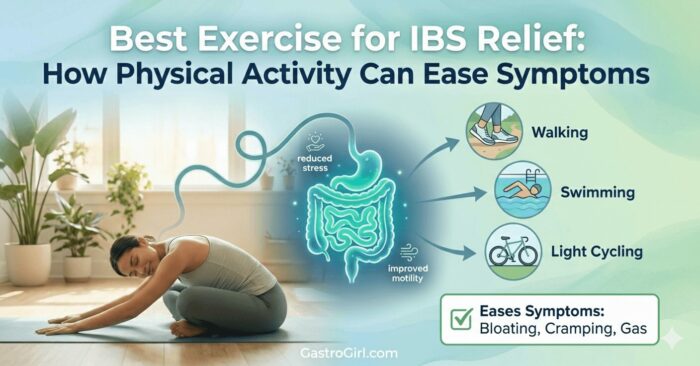
IBS during Pregnancy is a difficult problem to have for many women. For this reason, finding effective strategies to deal with this condition are of the utmost importance for expecting mothers.
For those affected, it might seem like the impossible but really this needs not to be the case – there are solutions.
Indeed! and it is these possible solutions for Managing IBS During Pregnancy we will be exploring in today’s post. So if this is something that is relevant to you then please keep reading…
Effective Strategies for Managing IBS During Pregnancy
Irritable Bowel Syndrome (IBS) is a common gastrointestinal disorder that affects millions of people worldwide. It is characterized by symptoms such as abdominal pain, bloating, and changes in bowel movements.
Managing these symptoms can be challenging, especially during pregnancy when hormonal changes and physical changes in the body can exacerbate IBS symptoms.
In this article, we will explore various strategies and techniques for managing IBS symptoms during pregnancy.
Understanding the Impact: How IBS Symptoms May Change During Pregnancy
Pregnancy can have a significant impact on IBS symptoms. Hormonal changes during pregnancy can affect the digestive system, leading to changes in bowel movements, increased bloating, and abdominal pain.
Many women with IBS experience an increase in constipation during pregnancy, while others may experience diarrhea or a combination of both.
The growing uterus can also put pressure on the intestines, leading to increased bloating and discomfort.
It is important for pregnant women with IBS to understand these potential changes in symptoms and be prepared to manage them. By being aware of how pregnancy can affect IBS symptoms, women can take proactive steps to alleviate discomfort and maintain their overall well-being.
Seeking Professional Guidance: Consulting with a Healthcare Provider for IBS Management
During pregnancy, it is crucial to consult with a healthcare provider for proper management of IBS symptoms. A doctor or midwife can provide guidance and support tailored to the unique needs of pregnant women with IBS.
They can help assess the severity of symptoms, discuss any concerns or questions, and recommend appropriate treatment options.
It is important to be open and honest with your healthcare provider about your IBS symptoms and concerns. They may recommend lifestyle modifications, dietary changes, or safe medications to help manage your symptoms during pregnancy.
It is essential to follow their advice and guidance to ensure the health and well-being of both you and your baby.
Dietary Modifications: Adapting Your Eating Habits to Alleviate IBS Symptoms
Diet plays a crucial role in managing IBS symptoms, and this is especially true during pregnancy. Pregnant women with IBS should pay close attention to their diet and make necessary modifications to alleviate symptoms. One of the first steps is to identify trigger foods that may worsen symptoms and avoid them.
Common trigger foods include spicy foods, fatty foods, caffeine, and carbonated beverages.
Incorporating more fiber into your diet can also help manage IBS symptoms during pregnancy.
However, it is important to do so gradually and drink plenty of water to prevent constipation. High-fiber foods such as fruits, vegetables, whole grains, and legumes can help regulate bowel movements and reduce bloating.
Probiotics, which are beneficial bacteria that promote a healthy gut, can also be beneficial for pregnant women with IBS. Probiotics can be found in fermented foods such as yogurt, kefir, sauerkraut, and kimchi.
Alternatively, probiotic supplements can be taken under the guidance of a healthcare provider.
Staying Hydrated: Importance of Drinking Enough Water for IBS Relief
Staying hydrated is essential for managing IBS symptoms during pregnancy. Drinking enough water helps soften stools and prevent constipation, which is a common symptom of IBS during pregnancy.
It also helps maintain overall digestive health and supports the proper functioning of the gastrointestinal system.
Pregnant women with IBS should aim to drink at least eight glasses of water per day.
It is important to spread out water intake throughout the day rather than consuming large amounts at once.
Sipping water throughout the day can help prevent dehydration and promote regular bowel movements.
In addition to water, herbal teas can also be beneficial for managing IBS symptoms during pregnancy.
Peppermint tea and chamomile tea are known for their soothing properties and can help alleviate bloating and abdominal pain.
Stress Management Techniques: Coping with Pregnancy-Related Anxiety and IBS
Stress and anxiety can significantly impact IBS symptoms, and pregnancy can be a stressful time for many women.
It is important to manage stress effectively to minimize the impact on IBS symptoms.
There are various techniques that pregnant women with IBS can incorporate into their daily routines to cope with stress and anxiety.
Relaxation exercises such as deep breathing, progressive muscle relaxation, and guided imagery can help reduce stress levels and promote relaxation.
Meditation and mindfulness techniques can also be beneficial for managing stress during pregnancy.
Taking a few minutes each day to focus on your breath and be present in ‘the moment’ can help calm the mind and reduce anxiety.
It is also important to prioritize self-care during pregnancy. Engaging in activities that bring joy and relaxation, such as reading, taking baths, or practicing hobbies, can help reduce stress levels and improve overall well-being.
Gentle Exercise: Incorporating Physical Activity to Ease IBS Discomfort
Exercise is known to have numerous benefits for overall health, including managing IBS symptoms. Engaging in gentle physical activity during pregnancy can help alleviate discomfort associated with IBS.
Exercise helps stimulate bowel movements, reduce bloating, and relieve abdominal pain.
Pregnant women with IBS should consult with their healthcare provider before starting any exercise routine.
They can recommend safe and gentle exercises that are suitable for pregnant women with IBS.
Walking, swimming, prenatal yoga, and low-impact aerobics are generally considered safe options for pregnant women.
However, still, It is important to listen to your body and not overexert yourself during exercise.
Start slowly and gradually increase the intensity and duration of your workouts as tolerated. If you experience any pain or discomfort during exercise, it is important to stop and consult with your healthcare provider.
Medication Considerations: Discussing Safe Options for IBS Relief with Your Doctor
When it comes to managing IBS symptoms during pregnancy, it is important to discuss medication options with your healthcare provider.
Some medications that are commonly used to manage IBS symptoms may not be safe during pregnancy.
It is crucial to consult with your doctor or midwife to determine the best course of action.
There are certain medications that are considered safe for managing IBS symptoms during pregnancy.
These include fiber supplements, stool softeners, and certain antispasmodic medications.
However, it is important to discuss potential risks and benefits with your healthcare provider before starting any medication (or supplements).
In addition to medication, there are alternative treatments and natural remedies that can provide relief for IBS symptoms during pregnancy. These include acupuncture, herbal remedies, and relaxation techniques.
It is important to consult with a qualified healthcare provider or practitioner before trying any alternative treatments.
Supportive Resources: Finding Online Communities and Support Groups for Pregnant Women with IBS
Finding support during pregnancy with IBS can be incredibly helpful and comforting. Connecting with others who are going through similar challenges can provide a sense of understanding and validation.
There are various online communities and support groups specifically for pregnant women with IBS.
These online communities and support groups provide a platform for sharing experiences, asking questions, and finding support.
They can be a valuable source of information and guidance during pregnancy. It is important to remember that everyone’s experience with IBS is unique, and what works for one person may not work for another.
However, hearing about others’ experiences can provide comfort and reassurance.
Planning Ahead: Preparing for IBS Flare-ups and Unexpected Challenges During Pregnancy
Managing IBS symptoms during pregnancy requires careful planning and preparation. It is important to anticipate potential flare-ups and unexpected challenges and have strategies in place to manage them effectively.
One way to plan ahead is by creating a pregnancy-friendly IBS emergency kit. This kit can include items such as over-the-counter medications recommended by your healthcare provider, a heating pad for abdominal pain, peppermint tea for bloating, and a list of safe foods to eat during flare-ups.
It is also important to have a support system in place. Inform your partner, family members, or close friends about your condition and let them know how they can support you during flare-ups.
Having someone to talk to or assist you during difficult times can make a significant difference in managing IBS symptoms during pregnancy.
Celebrating Small Victories: Recognizing and Celebrating Your Successes in Managing IBS Symptoms during Pregnancy
Managing IBS symptoms during pregnancy can be challenging, but it is important to celebrate small victories along the way. Recognize and acknowledge your progress and resilience in managing your symptoms.
Each day that you are able to effectively manage your symptoms is a success worth celebrating.
Finding joy and positivity in your journey with IBS during pregnancy is crucial for maintaining a healthy mindset.
Surround yourself with positive influences, engage in activities that bring you joy, and practice self-compassion.
Remember that you are doing the best you can and that managing IBS symptoms during pregnancy is a testament to your strength and resilience.
In Conclusion
Managing IBS symptoms during pregnancy requires a multifaceted approach that includes consulting with healthcare providers, making dietary modifications, staying hydrated, managing stress, incorporating gentle exercise, considering medication options, finding support, planning ahead, and celebrating small victories.
By implementing these strategies and techniques, pregnant women with IBS can effectively manage their symptoms and maintain their overall well-being throughout their pregnancy journey.
Remember to consult with your healthcare provider for personalized guidance and support.




Anxiety and Depression BiOptimizers blood pressure supplements blood sugar control blood sugar support supplements cognitive function digital products Dr Sam Robbins Exercise Gut Health Gut Health While Travelling Health Tips for Travelling Healthy Living heart health HFL how to lower blood sugar levels How To Lower Cholesterol insulin resistance joint health supplement keto dieting Keto Diet Weight Loss leaky gut supplements leptin resistance list Magnesium deficiency Matt Gallant mental health multivitamins Nootopia Nootropics nutrient supplements Probiotics Probiotic Supplements reverse type 2 diabetes stress and anxiety stress relief Supplements vitabalance vitapost Wade Lightheart weight loss articles weight loss diet plans weight loss product reviews weight loss supplements weight loss tea




